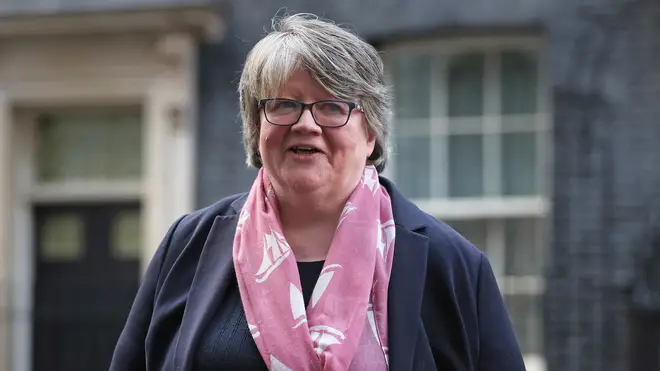
Nick Abbot 10pm - 1am
9 February 2021, 00:02

The £20 weekly increase to Universal Credit needs to be extended for at least a year to prevent hundreds of thousands of families plunging into poverty, MPs have warned.
The temporary uplift, introduced at the start of the coronavirus pandemic and described as a lifeline for those struggling, is in place until the end of March.
The Government is facing increasing pressure to extend the extra support, but has not yet said whether it will do so.
Read more: UK arrivals 'to be tested for Covid-19 on day 2 and 8 of quarantine'
A new report from the Work and Pensions Committee argues it must be kept in place for another year "at the very least", if the Government does not make it permanent.
Removing it in April would plunge hundreds of thousands of families into poverty and drag those already in poverty "down into destitution", the MPs warn.

Contact NHS for jabs over-70s told
They acknowledge that keeping the uplift would come at a substantial cost, with the Joseph Rowntree Foundation estimating it could cost around £6.4 billion in 2021/2022.
But the committee says the actual amount could be much lower if Government plans to support people back to work are successful in reducing the number of people who rely on the welfare system.
The committee has also warned against replacing the weekly increase with a one-off payment.
Read more: Over 70s who haven't had Covid jab urged to book appointment
Read more: South African Covid variant unlikely to become dominant in UK, says Prof Van-Tam
Charities have told the Work and Pensions Committee that a lump sum payment "makes no policy sense whatsoever".
It could destabilise people's budgets, people with addiction or substance misuse problems could relapse and it could push other claimants over the threshold for support such as debt relief, they said.
Work and Pensions Secretary Therese Coffey said a one-off payment was one of the options the Government has been considering, but would not be one of her department's "preferred approaches".

This is due to not knowing how long the economic impact of the pandemic will last, concerns around fraud, potential disincentives to taking or increasing work, and that a steady sum of money would be more beneficial.
Stephen Timms, chairman of the Work and Pensions Committee, said: "Removing the extra payment in March would represent a failure by Government - failure to recognise the reality of people struggling.
"Without regular support, hundreds of thousands of families will be swept into poverty or even destitution. Government must end the uncertainty and commit to extending this lifeline.
"The Chancellor faces difficult decisions about the public finances. He may find it hard at present to make the increase permanent. But the pandemic's impact on the economy and livelihoods will, sadly, be with us for some time. An extension for a year should be the bare minimum.
"We must also hope that Rishi Sunak will listen to the groundswell of arguments against one-off payments as an alternative, including from his cabinet colleague at our Committee last week. There is broad agreement that a steady income is necessary to support people."
A Government spokesman said: "We are committed to supporting the lowest-paid families through the pandemic, which is why we're spending hundreds of billions to safeguard jobs, boosting welfare support by billions and have introduced the £170 million Covid Winter Grant Scheme to help children and families stay warm and well-fed during the coldest months."
Iain Porter, policy and partnerships manager at the Joseph Rowntree Foundation, said the uplift should be retained for at least a year and extended to people claiming legacy benefits.
He said: "A short term extension of anything less than 12 months is not the answer as it would cut support for the poorest in our society just as unemployment is expected to peak later this year and remain high for some time.
"There is a widespread consensus that cutting benefits now would be a terrible mistake as it will have devastating consequences for people's health and ability to recover from this economic crisis, as well as for our economy and local communities that the Government has committed to level up."
Victoria Benson, chief executive of Gingerbread, the charity for single parent families, added: "The £20 uplift is a lifeline for many single parent families who are already living in poverty and it is inconceivable that it won't still be essential in a matter of weeks."